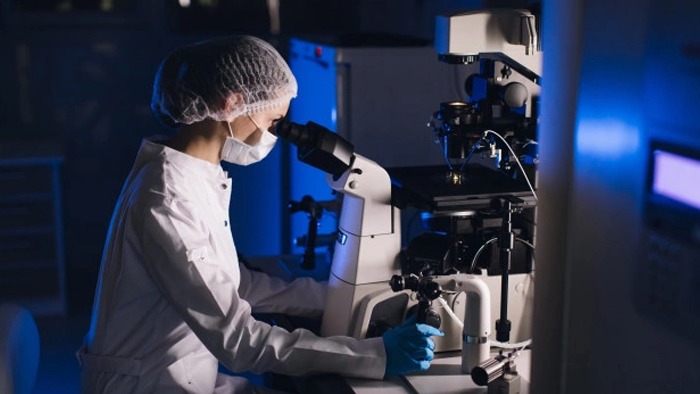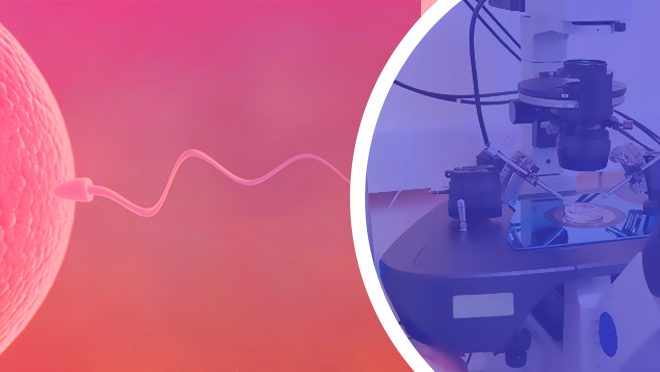Things You Should Know About Pursuing a Career in Embryology
Embryology is a field of comprehensive study that deals with assisted reproductive technology (ART) and reproductive biology. If you are considering a career in Embryology, these are the points you will need to consider.
- Who are embryologists?
- What are the responsibilities of clinical embryologists?
- Is a career in embryology worthwhile?
- What do you need to pursue a career in embryology?
Embryologists are scientists who work with fertility treatments and reproductive medicine. They track the process of fertilization and the development of the embryos in the laboratory. Embryologists have a critical role to play in helping couples who are unable to conceive naturally.
Embryologists are responsible for the egg retrieval process, ART procedures like in vitro fertilization. They also may have to interact with patients to discuss treatments. An embryologist’s job follows a strict timeline. Collection of eggs, preparation of sperm samples, freezing and thawing of embryos must all be done within a set timeframe. They may also have to make sure that the regulations are followed strictly and the paperwork and records are all proper.
Infertility is an issue that is rapidly growing both globally and in the Indian populace. It is estimated that the IVF industry alone would be worth Rs 495 crores by 2020 just in India.

The demand for certified and experienced embryologists will grow in parallel. It is a field of medicine that is rapidly evolving and exciting advances are being made all the time.
PayScale. Com says that in the year 2019, clinical embryologists made an average annual salary of $68,922 depending upon their experience. An entry-level embryologist earned about $51,300 while an embryologist with 10 to 20 years of experience earned an approximate salary of $87,300. All of this makes for a really stimulating career choice. The satisfaction that comes with helping people complete their family is just the cherry on the top.

You are expected to have a bachelor’s degree in biological science and a post-graduate degree in reproductive technology, Embryology, biotechnology, or medicine. The curriculum consists of theoretical, instructive, and practical training. Oasis School for Human Embryology and Reproductive Medicine offers a plethora of short and long term training programs that can help you gain practical skills and experience in the field of embryology.
References
- https://study.com/articles/Embryologist_Job_Description_and_Requirements_for_a_Career_as_a_Embryologist.html
- https://www.independent.co.uk/student/career-planning/getting-job/i-want-your-job-embryologist-772967.html
- https://www.payscale.com/research/IN/Job=Embryologist/Salary
- https://www.google.com/imgres?imgurl=https%3A%2F%2Fi.redd.it%2Frmmy8f5wn9511.jpg&imgrefurl=https%3A%2F%2Fwww.reddit.com%2Fr%2Fembryology%2Fcomments%2F8soa6d%2Fsrbt_commissioned_a_survey_of_us_salaries_here_is%2F&tbnid=3H40DGrc4KZjCM&vet=12ahUKEwjr55ObvJ3uAhUziuYKHTYkCN4QMygHegUIARCiAQ..i&docid=_gAt7iQSpwZR-M&w=1242&h=913&q=embryologist%20salary&ved=2ahUKEwjr55ObvJ3uAhUziuYKHTYkCN4QMygHegUIARCiAQ
- https://www.google.com/url?sa=i&url=https%3A%2F%2Fwww.gminsights.com%2Findustry-analysis%2Fin-vitro-fertilization-services-market&psig=AOvVaw2ySLckoRfOAMtoqldisEvC&ust=1610784073669000&source=images&cd=vfe&ved=0CAIQjRxqFwoTCJj2o8S8ne4CFQAAAAAdAAAAABAD
Related Posts
2 Comments
Leave a Reply Cancel reply
Recent Posts
- Pre-implantation Genetic Testing April 30, 2021
- Things You Should Know About Pursuing a Career in Embryology January 20, 2021





I am interested in the course I want to do this course
For more information Kindly call on +91-8106103636
Or send me your contact details and send ur resume to info@osherm.com…we will get back to you